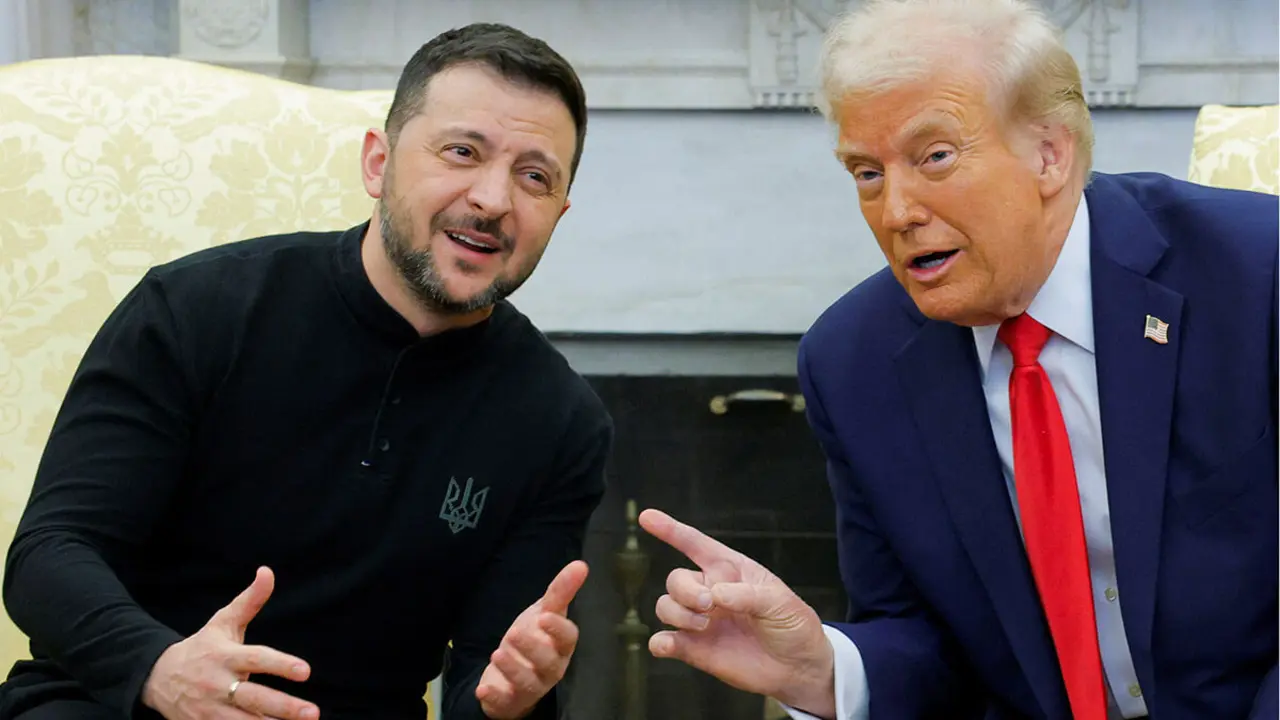Joe Biden calls Putin a "murderer" and says he will "pay a heavy price" for interfering in 2020 elections

Last November's US presidential election continues to raise eyebrows. A report released by the chief U.S. intelligence office concludes that both Russia and Iran attempted to interfere in the outcome of the vote that saw Democrat Joe Biden win.
"We assess that russian President Putin authorised, and a range of Russian governemt organizations conducted influence operations aimed at denigrating President Biden's candidacy and the Democratic Party, supporting former President Trump, undermining public confidence in the electoral process, and exacerbating sociopolitical divisions in the US," is how blunt the 15-page report is in pointing the finger at the Kremlin's top official.
US intelligence services directly accuse Andrii Derkach, a Ukrainian politician who acted on Putin's behalf, of trying to discredit then-candidate Biden. One of Moscow's key strategies, according to the report, was to use proxies linked to Russian intelligence to disseminate misleading claims and narratives to certain US media outlets and individuals, "including some close to former President Trump and his Administration."

The United States intel report says "unlike 2016, we did not see persistent Russian cyber efforts to access election infrastructure." Russia had already been accused of interfering in the 2016 elections, when hackers in the service of the Kremlin accessed Democratic Party computers, and made emails available to the public that severely damaged the image of Democratic candidate Hillary Clinton.
In an interview with ABC news, President Joe Biden, when asked about the consequences of the report, said that Vladimir Putin "will pay the price for his interference in the US election". But the most surprising answer comes from a second question posed by the interviewer asking him if he believes the Russian president is a murderer, to which the president replied flatly: "I do".
There is still no response from Russian President Vladimir Putin. The first reaction to this document has come from the Russian embassy in Washington, which has described these accusations as "unfounded" and denounced the fact that no facts or concrete proof of such claims have been provided. They also reproach the United States for continuing to practise "megaphone diplomacy", with the main aim of maintaining a negative image of Russia.

Russia regrets that this attitude on the part of the United States "hardly corresponds to its proposal for an expert, equal and mutually respectful dialogue in search of solutions to the most pressing problems". "Washington's actions are not conducive to the normalisation of bilateral relations," the embassy concludes.
"We assess with high confidence that Iran conducted an influence campaign during the 2020 US elections to undermine the re-election prospects of former President Trump". Unlike Russia, Iran's aim was to prevent a second term for Donald Trump, who during his presidency had decided to unilaterally withdraw from the nuclear deal with the Persian country and impose tough economic sanctions.
Intelligence experts have also accused the Lebanese Shiite militia Hezbollah, Venezuela and Cuba of attempting to intervene in the presidential election, although this was "on a smaller scale than those carried out by Russia and Iran". Director of National Intelligence Avril Haines has said that "malign" foreign influence "is an enduring challenge" that the US will face.

Following the Director of National Intelligence's lead, Senate Intelligence Committee Chairman Mark Warner, a Democrat, said that while the US has strengthened its defences against foreign interference, "the problem of foreign actors trying to influence the American electorate is not going to go away and, given the current partisan divisions in this country, may find fertile ground in which to grow in the future".
In conclusion, the report, rules out that China will try to influence this latest election. The intelligence services state that the Asian giant "prioritised stability in its relationship with the United States and did not consider the outcome of the election sufficiently advantageous to China to risk a backlash". It adds that Beijing is likely to continue to exert pressure through traditional methods, such as economic measures, to shape policy with the US regardless of the winner.








